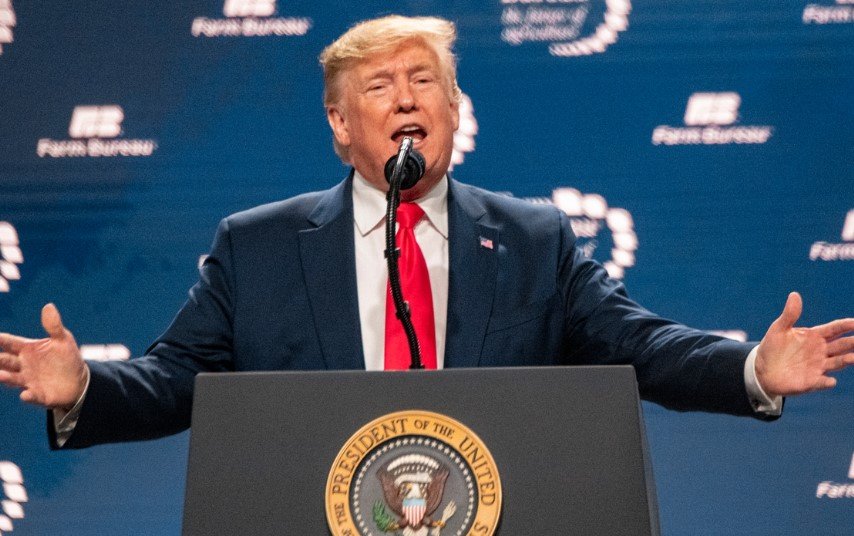Donald Trump has reaffirmed that the 25% tariffs on Canada and Mexico will be implemented as scheduled on March 4. Speaking at a press conference alongside French President Emmanuel Macron, Trump emphasized his belief that the U.S. has been unfairly treated in trade deals, reinforcing his commitment to what he calls a “reciprocal” tariff policy.
Tariffs Set to Take Effect Without Delay
The former U.S. president, who has consistently criticized trade policies he considers detrimental to American interests, made it clear that the tariffs will be enforced on time.
“We’re on time with the tariffs, and it seems like that’s moving along very rapidly,” Trump stated. “We have been mistreated by many countries, not just Canada and Mexico, and have been taken advantage of.”
He doubled down on his stance, asserting that his administration’s tariff strategy is about fairness. “All we want is reciprocal. If someone charges us, we charge them—it is very simple,” Trump said.

Economic and Political Ramifications
The 25% tariffs on Canada and Mexico, the two largest trading partners of the United States, could have significant economic consequences. Experts warn that imposing such duties could increase costs for American consumers and businesses while escalating trade tensions in North America.
- Inflation concerns: Higher tariffs could lead to increased prices on imported goods, contributing to inflationary pressures.
- Potential supply chain disruptions: Companies relying on Canadian and Mexican imports might face logistical and financial challenges.
- Retaliatory measures: Canada and Mexico may respond with their own tariffs, potentially escalating a trade conflict.
While Trump argues that these tariffs will make the U.S. economy “extremely liquid and rich again,” many economists and industry leaders caution that they could instead slow economic growth.
Canada and Mexico Brace for Impact
Both Canada and Mexico are preparing for the economic shock that the tariffs could bring. Canada has yet to announce its official response, but trade analysts suggest that retaliatory measures could be on the table.
Mexican President Claudia Sheinbaum Pardo remains hopeful that a last-minute agreement can be reached. “We are in discussions, and if necessary, I am willing to speak with Trump directly,” she said, signaling Mexico’s willingness to negotiate.
Canadian officials have also indicated that they are exploring possible countermeasures. A spokesperson for Prime Minister Justin Trudeau’s office stated, “We are reviewing all options to protect Canadian workers and industries.”
A Broader Trade Strategy
Trump’s push for tariffs on Canada and Mexico is part of a broader agenda to enforce reciprocal tariffs on multiple countries. He has long argued that past U.S. trade policies have been too lenient, allowing other nations to take advantage of American markets.
At the press conference, he reiterated, “Tariffs will go forward. Yes, we will make up a lot of territory.”
If the tariffs proceed as scheduled, this move could set the stage for a new wave of trade disputes, impacting not just North America but the global economy. With just days left until the deadline, all eyes are on Canada, Mexico, and the U.S. to see if a resolution can be reached—or if a trade war is imminent.
